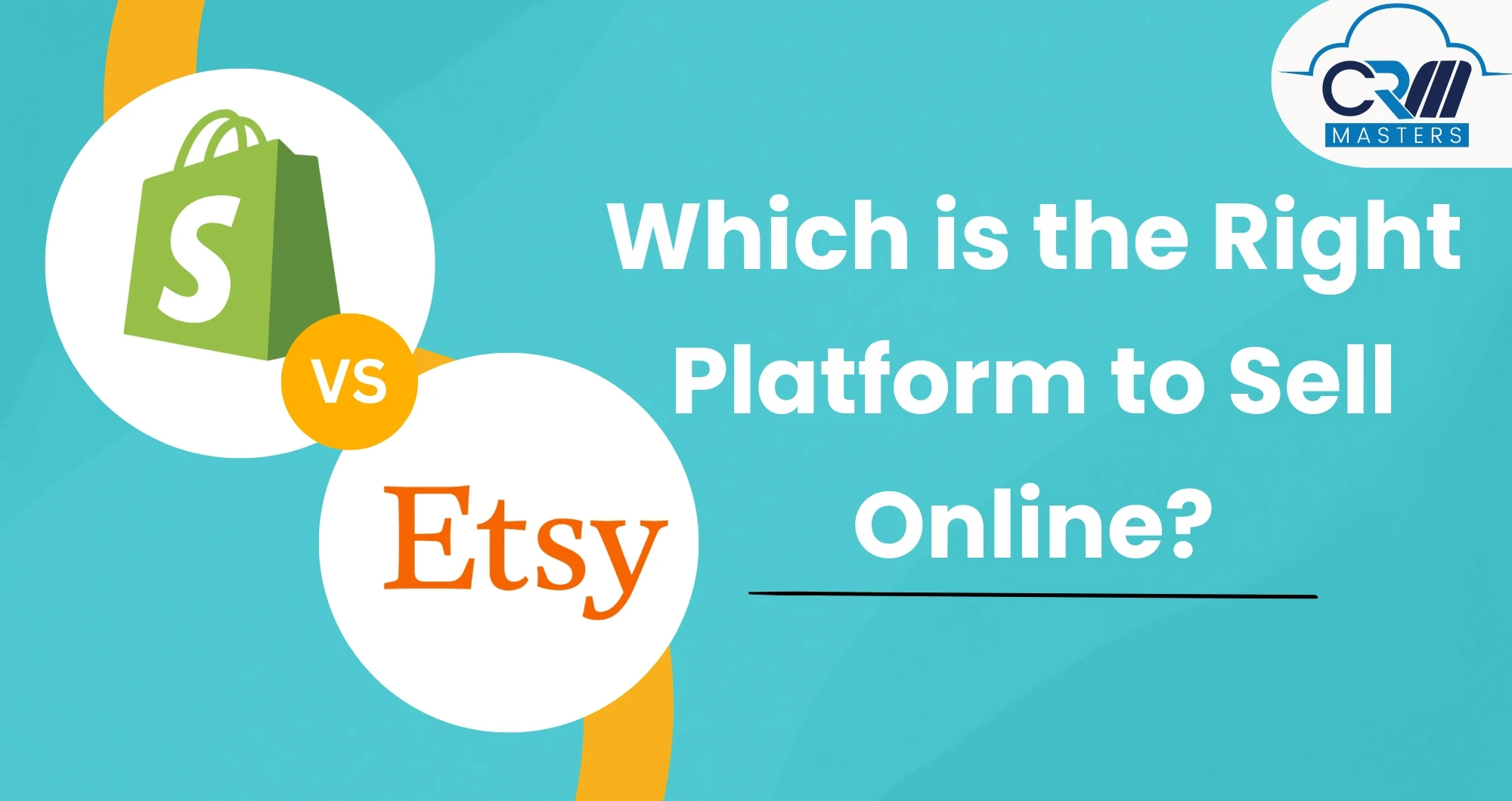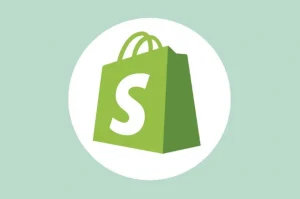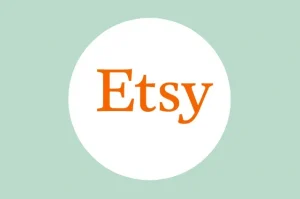
Shopify vs. Etsy: Choosing the Right Platform for Your Business
If you want to start an online business, choosing the right platform is crucial: Shopify vs. Etsy have always been in competition. These two of the most popular options, each catering to different types of businesses. While Shopify allows you to build a fully customizable online store, Etsy functions as a marketplace tailored for handmade, vintage, and craft items. Partnering with an experienced Ecommerce Website Development Company can simplify this process by guiding you to the right platform.
Understanding their differences will help you determine which one aligns best with your business goals. Throughout this blog, you will learn how to set them up and customize them, as well as how to list products with marketing tools, secure them, and estimate costs.
What Does Shopify Offer?

Shopify is a complete ecommerce solution enabling business owners to create and manage online stores independently. It provides full control over branding, website design, and product listings, making it ideal for businesses that want to build a strong identity and scale over time. It is also easy to design shopify website in easy steps.
With Shopify, sellers can:
- Customize their store’s appearance using themes.
- Sell unlimited products.
- Integrate various payment gateways.
- Expand to multiple sales channels, including Facebook, Instagram, and Amazon.
- Utilize Shopify’s built-in analytics to track sales performance.
What Does Etsy Offer?

Etsy is an established online marketplace designed for small businesses that specialize in handmade, vintage, and craft-related goods. Unlike Shopify, where you build a standalone store, Etsy sellers list their products in a shared marketplace where customers browse different shops in one place.
With Etsy, sellers benefit from:
- An existing audience actively searching for unique products.
- A simple, structured setup process.
- Built-in marketplace traffic, reducing the need for independent marketing.
- Etsy’s algorithm helps connect buyers to relevant products based on search history.
However, Etsy sellers also face limitations such as high competition, limited customization options, and marketplace fees on each sale.
Comparing Shopify and Etsy: Key Differences
1. Setup Process: Which One is Easier?
If you’re looking for a quick way to start selling, Etsy provides a hassle-free experience. The setup process is guided, allowing you to list products almost immediately without worrying about website design or backend configurations.
Shopify, on the other hand, requires a bit more effort in the initial setup. Since it’s a standalone ecommerce platform, you’ll need to select a theme, configure payment and shipping settings, and customize pages before launching your store. However, Shopify’s user-friendly dashboard and AI-powered tools like Shopify Magic simplify the process.
So, Etsy is better for beginners who want an easy setup, while Shopify is ideal for those who need complete control over their store’s design and functionality.
2. Customization and Branding: Who Offers More Freedom?
Branding is essential for any business, and Shopify provides extensive customization options to help your store stand out. With access to free and premium themes, sellers can modify their website’s layout, colors, fonts, and functionality. Additionally, Shopify’s Liquid coding allows advanced customization for experienced developers.
Etsy, being a marketplace, offers limited branding opportunities. Every shop follows Etsy’s standard format, making it harder to establish a unique identity. You can add a logo and product images, but the overall look of your store will resemble other sellers on the platform. Moreover, you cannot customize the checkout process, which means a less personalized shopping experience for customers.
So, Shopify is the better option for businesses focused on branding and customization.
3. Product Listings and Inventory Management
One of Shopify’s biggest advantages is that it allows sellers to list unlimited products with full control over categories, pricing, and inventory tracking. Additionally, Shopify supports bulk uploads, making it easier to manage a large inventory. Sellers can also use Shopify’s automated inventory tracking system to prevent overselling.
Etsy, however, charges a $0.20 listing fee per product and has restrictions on the types of goods you can sell. The marketplace is primarily for handmade, vintage, and craft supplies, so businesses selling mass-produced or digital products may find it restrictive. Etsy’s inventory management is also limited, requiring manual updates for stock tracking.
So, Shopify is better for businesses with extensive inventories, while Etsy is suited for niche, handmade, or vintage products.
4. Which Platform Offers More Tools?
Shopify provides a wide range of advanced ecommerce features, including:
- Multi-channel selling (Facebook, Instagram, Amazon, etc.).
- Multiple payment gateways.
- Advanced inventory management tools.
- A built-in Point of Sale (POS) system for in-person sales.
- Access to thousands of apps in the Shopify App Store to enhance functionality.
- Shopify Flow for automation to improve efficiency.
Etsy, in contrast, offers basic tools like the Etsy Seller App, search analytics, and shipping label generation. However, it lacks features like multichannel selling, extensive app integrations, and advanced inventory management.
So, Shopify is the better choice for businesses looking for advanced sales, ecommerce tools, and third-party integration.
5. Who Helps You Reach More Customers?
Etsy benefits from its built-in marketplace traffic, attracting millions of visitors monthly. However, competition is intense, and to stand out, many sellers invest in Etsy Ads and optimize product listings with SEO-friendly descriptions.
Shopify, being a standalone platform, requires sellers to drive their own traffic. However, it offers robust marketing tools, including:
- Shopify Email for email marketing campaigns.
- SEO-friendly features to improve search engine rankings.
- Social media and Google Ads integrations.
- Shopify Forms for capturing leads.
- Built-in blogging capabilities to improve organic reach.
So, Etsy provides immediate exposure but limited marketing tools, whereas Shopify gives you full control over marketing strategies.
5. Transaction Fees and Costs: Which is More Cost-Effective?
- Etsy charges a $0.20 listing fee per item, plus transaction and payment processing fees. The costs can add up, especially for high-volume sellers. Etsy also takes a 6.5% transaction fee on each sale
- Shopify operates on a subscription model, starting at $29/month for the Basic plan. There are no per-listing fees, making it more cost-effective for businesses with large inventories. However, Shopify does charge payment processing fees unless using Shopify Payments.
So, Shopify offers better long-term value for growing businesses, while Etsy is ideal for smaller-scale sellers.
6. Security and Payment Options
Both Shopify and Etsy provide secure payment options, including credit cards and PayPal. Shopify supports over 100 payment gateways, whereas Etsy limits payment processing to its own Etsy Payments system.
Shopify also offers enhanced security features such as:
- SSL certificates for safe browsing.
- PCI compliance for secure transactions.
- Two-step authentication for extra account protection.
So, Shopify provides more flexibility and advanced security measures.
Which Platform Should You Choose?
-
Choose Shopify if:
- You want full control over store design and branding.
- You plan to scale and expand your product offerings.
- You need advanced marketing and ecommerce features.
- You want to sell across multiple platforms.
-
Choose Etsy if:
- You sell handmade, vintage, or craft items.
- You want an easy-to-set-up store with built-in traffic.
- You prefer a low-maintenance selling platform.
Get the Best Advice with CRM Masters!
Both Shopify and Etsy offer distinct advantages depending on your business needs. If you’re looking for a fully customisable ecommerce store with growth potential, Shopify is the best choice. However, if you want a simpler, ready-made audience, Etsy provides an easier way to start selling online.
If you still need a consulting session, then book your free consultation call with us. CRM Masters will help you decide the right platform for your business.
Contact Now!












